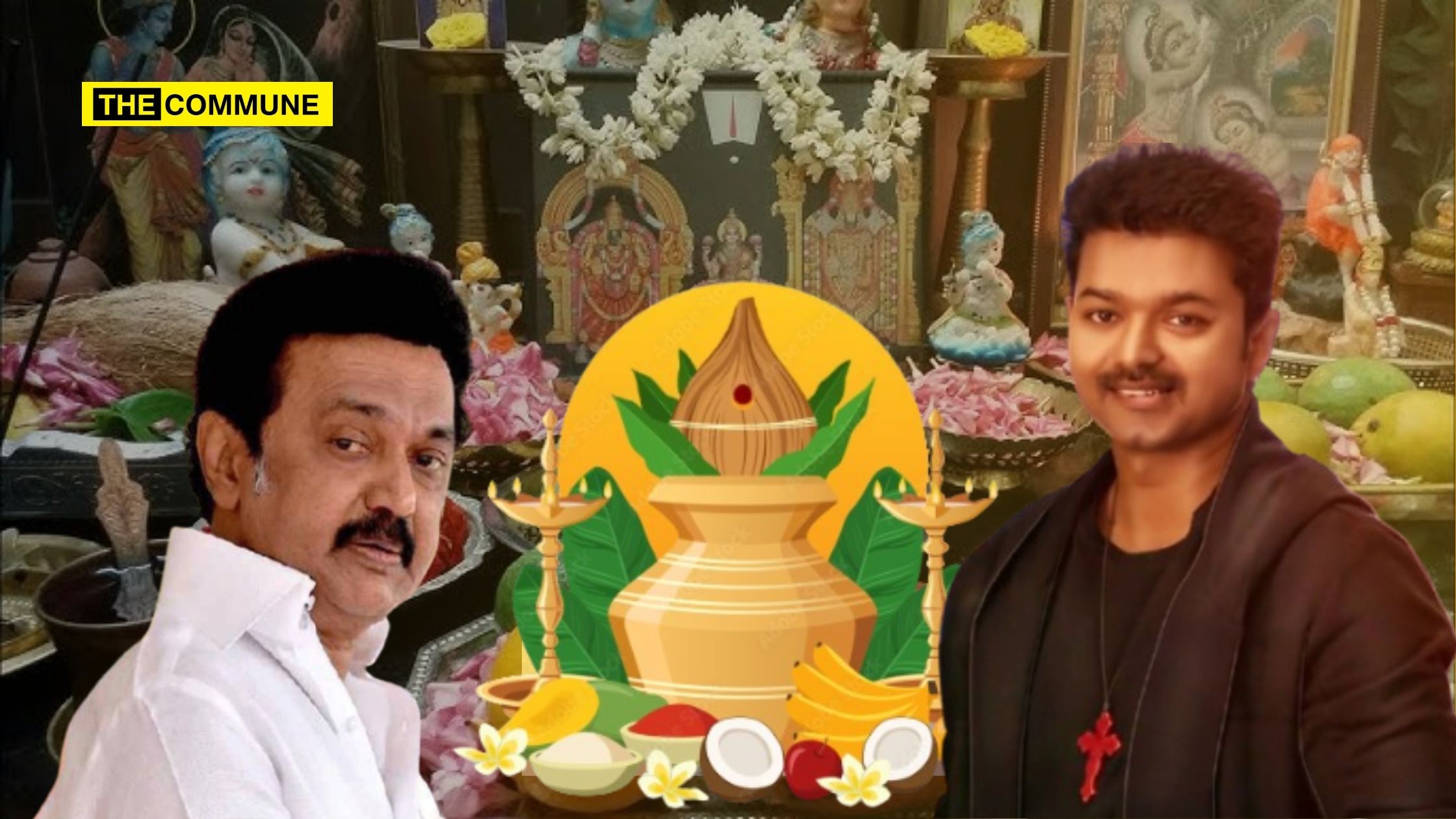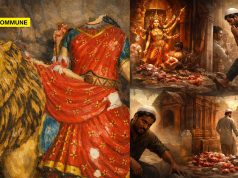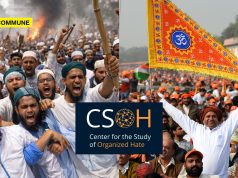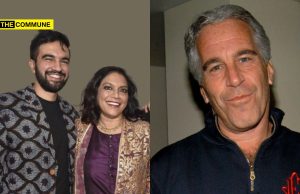
Puthaandu or the Tamil New Year marks the first day of the first month (Chithirai) of the Hindu Tamil calendar that is based on the solar cycle. It usually falls on the 14th of April of the English Gregorian calendar.
Not just by Tamil Hindus, the commencement of the new year is celebrated as Vishu in Kerala, Rongali Bihu in Assam, Pohela Boisakh in Bengal, Bishuva Sankranti in Odisha, Jud Sheetal in parts of Bihar, etc. Even countries like Malaysia, Indonesia, Bali, Cambodia, Laos, Sri Lanka, Thailand, etc also celebrate the traditional New Year around this time.
However, the DMK and other ‘Dravidian Stockists’ observe Pongal (which occurs around January 14) as Tamil New Year as they argue that celebrating Chithirai 1 as the beginning of a new year amounts to following a ‘Brahmin-dominated’ or Sanskritic tradition which goes against Dravidian ideologies.
Joining this bandwagon is actor and part-time politician C Joseph Vijay, who wishes for Tamil New Year on Pongal Day (Thai 1) and not Chithirai 1.
But no matter how much these Dravidoids try to distort and try to de-Hinduize Tamil festivals, there is enough evidence in ancient Tamil literature that points out that the first day of the Chithirai month marks the beginning of a new year.
Evidence In Tamil Literature For Chithirai 1 Being Tamil New Year
“திண்ணிலை மருப்பின் ஆடு தலையாக விண்ணூர்பு திரிதரும் வீங்கு செலல் மண்டிலம்”
“Thinnilai Marruppin Aadu Thalaiyaaga Vinnurpu Thiritharum Veengu Sella Mandilam”
The above quote by Nakkeerar, a famous Tamil poet of the Sangam age, notes that the world runs with the goat (Mesha Rasi/Aries) as the first sign.
Not only in this Sangam song, many ancient Tamil songs that are about the astronomical predictions and changes in position of planets and starts.
Kudalur Kizhar is another poet of the Sangam era whose poems are part of the Kurunthogai (166, 167, 214) and Purananuru (229). In the poem in Purananuru, where he predicts the death of Chera ruler Yanaikatchei Mantharanj Cheral Irumborai (62-42 BC), he mentions Chithirai month and Mesha rasi.
In essence, the first month of the year is the month of Chithirai during spring when the Sun enters Mesha (Aries) zodiac sign. The year ends with the month of Panguni when the sun comes up in Pisces. This is the solar calendar that is followed across the country while there are many communities in different states that follows the lunar calendar.

There is a reason why the harvest festival is celebrated in Thai (January) and the New Year in Chithirai (April). Earlier, after harvesting the crops in the Thai month (January-February) farmers take short period of rest in the months of Masi and Panguni (February-April) and start their farming again from Chithirai (April) which marks the beginning of the spring season.
Stanley Rajan, a Tamil blogger has written an essay in Tamil where he explains how ‘Chithirai 1’ as Tamil New Year is very much a Tamil practice. In the essay, he mentions a song called ‘Yermangalam’ in Silapathikaram which mentions a line ‘Chithira Mezhi Vaibhavam’ that talks about a festival marking the seasonal change for the Tamil people. It literally means that in the Chithirai month, the king will plow the land to mark the beginning of the new year.” He also quotes various other texts to help explain his point.
So, the festivals that we celebrate are part of ancient knowledge and tradition handed over to us by our ancestors. They also signify the rich cultural heritage of this land.
Hence, Puthandu is not a day that can be changed to the whims and fancies of a bunch of politicians and their stooges to peddle their nonsensical agenda.
Agenda Of DMK And Other Dravidian Stockists
The DMK and other Dravidian parties wants to make the Pongal festival which falls on the Tamil month of ‘Thai’ as Tamil New Year. They say that old Tamil texts and history shows that Tamil New Year was actually celebrated in the month of January. They argue that after 2nd or 3rd Century BC, Sanskrit culture and language started influencing Tamil culture and language. Apparently, a few scholars saw details of the year beginning in Thai in classical Tamil literature, such as the anthologies of Sangam-era poems like Natrinai and Ainkurunuru and the grammar book Tholkappiam. But as we’ve seen above there is enough proof in ancient Tamil literature that busts these deliberate distortions.
The other argument put forth by the DMK and their minions is that Thiruvalluvar’s birth date was once found out to be in the month of January around 31 BCE, and the 60-year-cycle of the Sanskrit Calendar was replaced with the Tamil Calendar beginning with the Thiruvalluvar Era. So the argument is that, by the logic of following a calendar starting from the Thiruvalluvar era, the year should also begin at the same time.
But that’s no the real motive for the DMK or Dravidoids like part-time politician Vijay. They want to attack the Hindu faith and debase Tamils from their Hindu roots.
The English New Year is celebrated on January 1st, which comes 6 days after Christmas, the day considered as the birth date of Jesus Christ. But, in Tembavani, Veeramamunivar says that the actual birth date of Jesus Christ is actually ‘Margazhi 25th’ which comes somewhere in the first week of January, before Pongal. So, it is being speculated that the party might want to make ‘Thai 1’ as Tamil New Year, in order to bring it closer to Jesus Christ’s actual birth date. The theory basically says that the idea behind changing the date is to Christianize the concept of Tamil New Year.
The decision to change the New Year isn’t new. Back in 2008, when the ruling government in Tamil Nadu was DMK, the then Chief Minister, M Karunanidhi passed the Tamil Nadu New Year (Declaration) Bill 2008, changing the Tamil New Year from Chithirai 1 (April 14th) to Thai 1 (January 14th or 15th).
This ridiculous change was in action for three years until it was rescinded by the AIADMK in August 2011. No matter how hard the inimical forces might try to delink Hinduism with Tamil culture, they will fail. Miserably.
The DMK’s and Dravidoid Joseph Vijay’s attempt to delink Tamil and Hindu culture will never resonate with the Tamil people, who continue to celebrate New Year on Chithirai 1, rejecting the Dravidoids’ efforts to the dustbin
And it will remain there!
Tamil people should reject the DMK’s and Dravidoid Vijay’s move to christianize Tamil culture lock, stock and barrel.
(With inputs from Sundar Raja Cholan‘s Facebook Post in Tamil)
Click here to subscribe to The Commune on Telegram and get the best stories of the day delivered to you personally.




